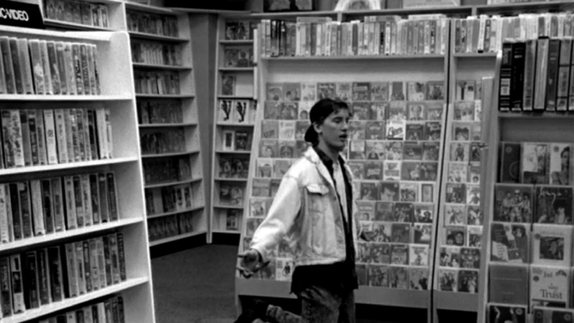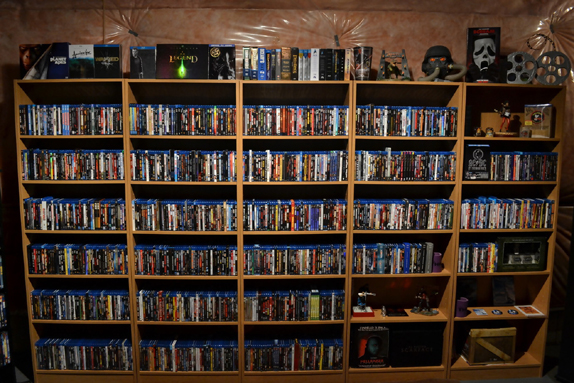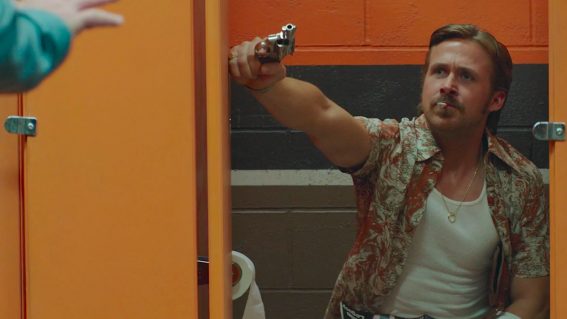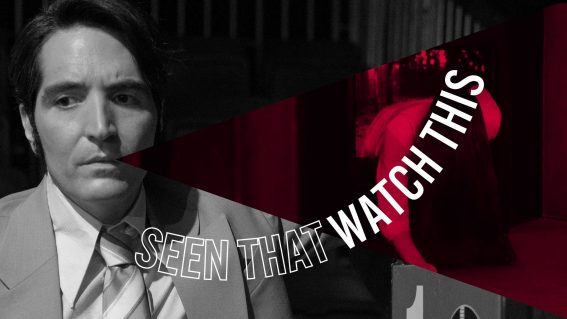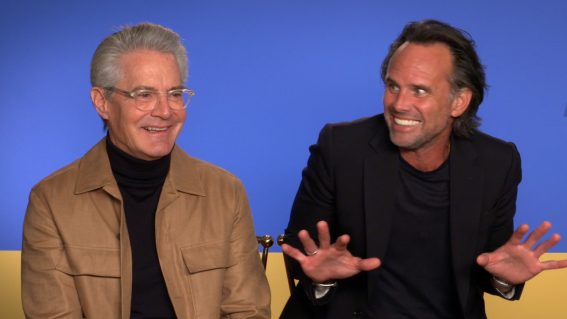DVDs Are Not !#$%ing Dead (Yet)

I took this picture earlier this year and was surprised by how much it depressed me. I haven’t rented anything from a video store in years, but the sight of this empty, abandoned Civic Video outlet in Grey Lynn, Auckland still touched a raw nerve. This is the future. And the future DOES NOT HAVE ANY VIDEO STORES.
I used to frequent this store back in the day. My first time with a Jim Jarmusch movie was through this store. I rented a copy of Stranger Than Paradise and fondly recall the dude at the counter perking up and giving me the A-OK hand gesture. It gave me a little confidence that I had made a good choice. The movie is now a favourite of mine, and that small but resonant gesture of approval? Not something I foresee experiencing again anytime soon. The sad reality is that there’s a video store or two closing every week in New Zealand. Not sure if anyone has noticed (or even cares) – if you’re reading this, it’s likely that you haven’t stepped in a brick-and-mortar rental store since you’ve discovered the myriad wonders of the internet – but it’s happening at such an alarmingly rapid rate, we’ll soon have to file Clerks under “Period Pieces”.
The imminent extinction of the video store as we know it is echoed in this recent Cinemablend article, which claims “DVDs are going the way of the dinosaurs”. Of course, this isn’t news. Tech watchers have been calling it for a while now. Digital is dominating every facet of the content-delivery industry and nothing can stop it. Apparently at least 30,000 tech-savvy Kiwis are already using Netflix, and who knows how many more are torrenting their hearts out. But as a long-time consumer of physical media, I’m not ready to give up just yet. I can’t see a future where demand for DVD/Blu-ray = 0.
The easiest comparison we could make is with books and music. Kindle hasn’t killed the library; mp3s haven’t killed CDs nor vinyl (which if anything has enjoyed an upswing in sales). But it’s probably wise to distinguish between the two “cultures” of content consumption for movies and TV. There’s a large portion of society who just want to watch stuff. And they want it NOW. Fast, easy, cheap. Those are the people who flock to Netflix, Pirate Bay etc. It makes perfect sense. You can’t beat the convenience. Physical media will not serve these people. For them, DVDs are shiny coasters. (Let’s not forget, one person’s convenience is another’s chore: whether it’s the unfamiliarity with the tech, or the prohibitive expense of broadband, we are not at a time where every living human being is hooked up, or knows how to download and manage content with the ease of popping a DVD into a player and hitting play).
The other portion are key to the longevity and survival of DVD/Blu-ray: the collectors. I’m not arguing that the rental market won’t suffer or decline – it will eventually – but we shouldn’t underestimate the collectors: those for whom just streaming/renting a movie is not enough. They want that movie sitting on their shelf. Collectors take pride and satisfaction in building and maintaining their own library of movies; to have 1000 avi files on a 1 Terabyte hard drive won’t cut it. I mean, who cares about your hard drive or Mega cloud locker? Some pathologically entitled 15-year-old Game of Thrones-pirating monkey will have the same thing. A personally curated library – okay, now that’s interesting.
The thing is, the value of watching a digital file dissipates after you watch it. It’s a cold bit of data. There’s no love, no human element. You can’t hold it. If you don’t know what I’m getting at, watch this terrific video that shows the painstaking lengths in which Criterion Collection go to produce their DVD and Blu-rays, from the restoration of film elements to the final artwork:
In a perfect world, all films – well maybe not Blended, but particularly those that risk vanishing forever due to lack of attention – will be treated with as much care and passion as this. Perhaps the most important thing the video highlights is quality control. When you buy Criterion, you KNOW you will be getting the best-looking, most definitive version of a film possible. The world of streaming offers no such guarantee or consistency – it’s just content dump. Netflix are notorious for streaming things in the wrong aspect ratio and stuck with whatever materials the studios provide them, quality be damned. Average Joe paying $7.99 a month won’t care though.
What a company like Criterion effectively do is elevate the packaging and presentation of movies into an art form. The film looks pristine, the artwork is stylish and elegant, the extras are thoughtful and valuable, not just fluffy EPKs. The media itself is transformed into something of WORTH. It’s the beautiful result of a group of people who are mad about movies and want the best for them. Once you can communicate that, there will be people out there with a similar level of passion who will keep buying your shit.
Criterion aren’t alone though; other boutique companies like Eureka, Arrow Video, BFI, Vinegar Syndrome, Shout! Factory, Olive Films and Twilight Time have also proven themselves to be similarly quality-focused saviors of cinema in physically packaged form (read this piece on Shout! Factory). You know when there’s someone out there actually going through the process of restoring a mega-obscurity like Runaway Nightmare in 4K, there’s still hope for DVD and Blu-ray.
* This Forbes article is a year old, but I think it makes some still-relevant points about DVD.
** Let’s imagine a future where people give each other SVOD links or codes as gifts. No actually let’s not.
*** Worth watching: Inside Scarecrow Video: The Largest Independent Video Store in the World.


